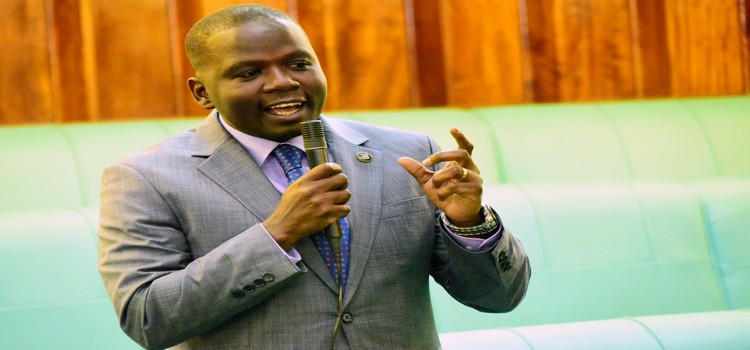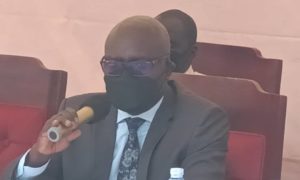Parliament has granted leave to a backbench member, Hon. Herbert Ariko, to present the Anti Slavery Bill, intended to prohibit slavery, servitude and forced labour.
In presenting the proposal, Ariko observed that different legislation dealing with slavery in Uganda, including the Constitution, the Penal code Act and the Prevention of Trafficking in Persons Act, 2009 consider the traditional forms of slavery, being, the buying and selling of human beings but do not deal with the modern forms of slavery that are prevalent today.
Ariko said the Bill would put particular emphasis on protecting Ugandans especially youth and children from slavery.
“Colleagues will ask why we should not rely on the Anti-trafficking in Persons Act 2009, but this Act focuses on moving somebody from one place to another for purposes of exploitation. We would like a Bill that goes beyond moving persons to catering for those enslaved in institutions or families,” he said.
The proposed Bill is premised on Article 25 of the Constitution of Uganda that imposes a prohibition on slavery, servitude and forced labour, and according to Ariko, Ugandan legislation dealing with slavery does not consider modern forms of slavery that are prevalent today.
“The 2017 trafficking in persons report declared Uganda as a source, transit and destination for men, women and children subjected to forced labour. Uganda was ranked as a country whose government does not fully comply with minimum standards of eliminating trafficking in persons,” said Ariko.
In his justification for the bill, Ariko told the House that many Ugandans had been subjected to forced labour in several foreign countries, adding that unlicensed agencies had ignored a Government ban on Ugandans’ travel abroad for domestic work.
“The 2017 Trafficking in Persons Report found that Ugandan migrant workers are subjected to forced labour and sex trafficking in United Arab Emirates, Saudi Arabia, Egypt, Jordan, Turkey, Oman, Kuwait, Iraq, Iran, Qatar, and Algeria… some licensed and unlicensed agencies are sending Ugandans through Kenya and Tanzania,” read the motion.
While seconding the motion, Bugabula South County MP, Hon. Henry Kibalya also raised concerns over the empty promises of jobs to unsuspecting Ugandans by recruitment agencies and noted that the proposed bill would check on the inhumane treatment Ugandans face when they seek employment outside Uganda.
“Licensed and unlicensed agencies recruit people with a promise of getting them decent jobs but they end up in indecent employment. Trafficking of children also remains a big problem in our country,” said Kibalya.
Deputy Attorney General, Hon. Mwesigwa Rukutana, however told the House that there was no need to have another law against slavery action, noting that there was already a legal framework to address the intentions of the proposed bill.
“Though the concerns of the Members are legitimate, we do not need another bill because they are catered for by the Constitution of Uganda and the Penal Code Act,” he said, before being overruled by the Speaker, who said the House was only considering the motion seeking leave to move a private members bill, rather not the merits of the proposed law.
The proposed Anti-Slavery Bill, 2018 will seek to repeal the Prevention of Trafficking in Persons Act, 2009 and make provision for the prohibition of slavery, servitude and forced or compulsory labour as well as provide fit the repatriation and compensation of victims of offences under the Act.





























